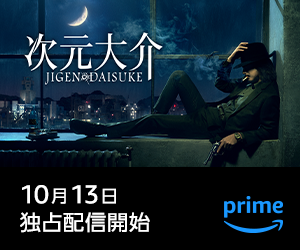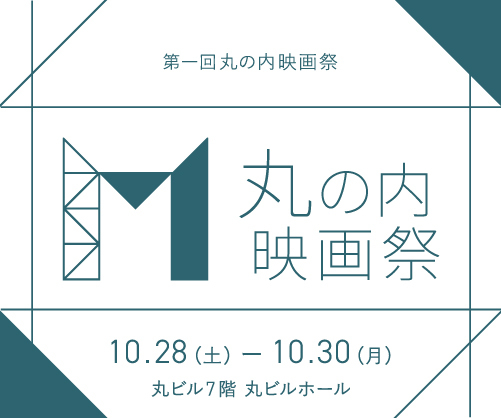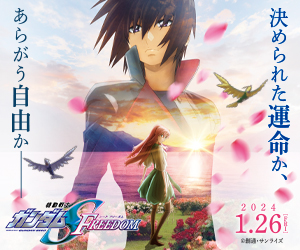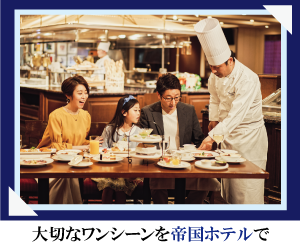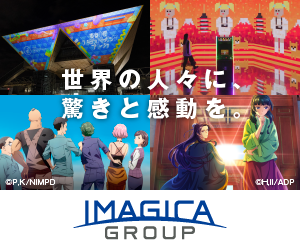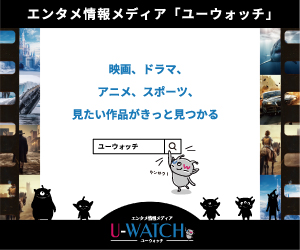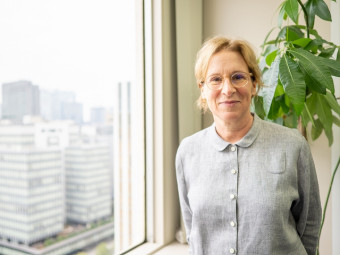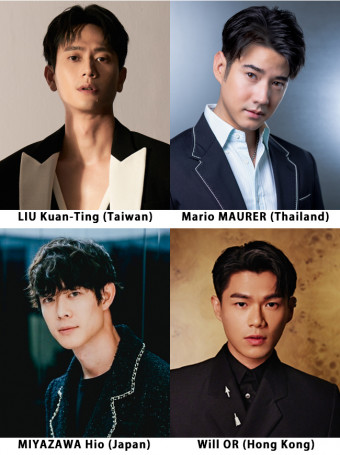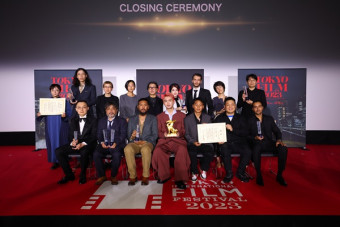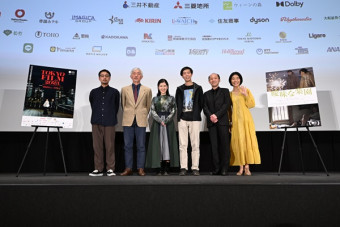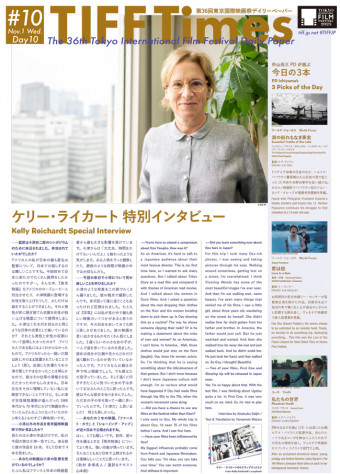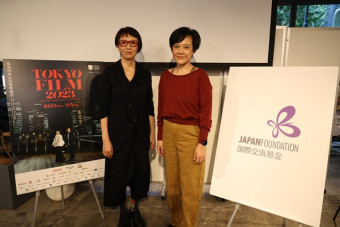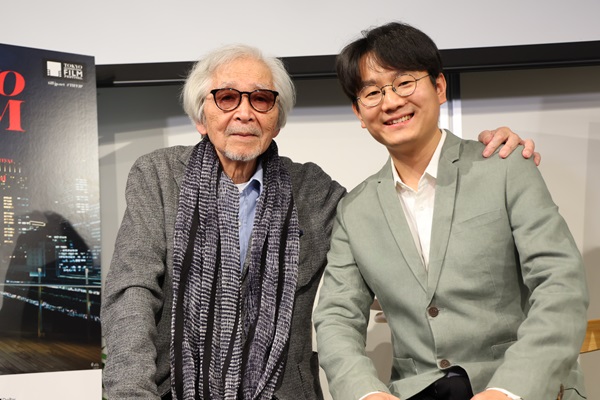
During an engrossing conversation at the TIFF Lounge on October 30, emerging Chinese filmmaker Gu Xiaogang and veteran Japanese director Yamada Yoji adhered to the expected senior-junior conduct, but one could see in Yamada’s effusive praise for Gu’s 2019 debut, Dwelling in the Fuchun Mountains, his sense of discovering something that only comes along once in a lifetime.
Co-sponsored by The Japan Foundation and TIFF, the session brought together the 35-year-old Gu, whose second feature, Dwelling by the West Lake, is screening in the Competition section of the 36th Tokyo International Film Festival, with 92-year-old Yamada, who has directed almost a hundred films, including the Otoko wa Tsurai yo series, also known as the Tora-san movies, the longest-running feature film series in cinema history.
Their conversation kept veering back to one question: When is Gu going to make a sequel to Fuchun? After all, there is a title card at the end of the film saying that it is the end of the “first part.” By the end of their hour-long discussion, Gu promised he would do his best to realize such a project, if only to satisfy Yamada’s pleas.
“I was so surprised when I saw Fuchun, such a wonderful film,” said Yamada at the beginning of the conversation. “I don’t know how to describe it. It was like listening to Mozart, and I wondered who this director was and what was his process?” Fuchun is about an extended family living in a town in Hangzhou, and their various financial and domestic problems, which are tied directly to China’s growing economic clout. “I wanted to meet him,” continued Yamada, “and I had the chance at the Shanghai International Film Festival.”
About this meeting, Gu said, “It was indeed memorable, but also a bit perplexing. I was nervous about meeting Mr. Yamada, but I never imagined he would invite me to TIFF so that we could speak again in public. Such experiences are very motivating for a young filmmaker like me.”
On Yamada’s part, he was eager to have Gu come back to Tokyo so they could “finish our conversation about Fuchun.”
Gu described his second film as being a complete “departure” from the themes explored in his first. Though it does focus on a family, the problems explored—a financial scam that ruins many families—are more on the societal level. “I was nervous about this departure, and during the screening I was staring at Yamada [in the audience] the whole time, and then noticed during the Q&A that he had left his seat, so I wondered if he was disappointed.” As it turned out, the Japanese director “had something else to attend to,” but he did let on that he expected the new movie to be a continuation of the first.
Gu explained that he didn’t repeat himself because his motivations had changed. “When I made the first film,” he said, “I didn’t understand cinema that well. I thought it was important to keep your back to the audience, to forget them and just concentrate on the film. But for the second film I wanted to face the audience, because I wanted them to be drawn into the drama revolving around the scam.”
He elaborated on this approach to audiences by describing the Q&A for Yamada’s latest film Mom, Is That You? in Shanghai, where a viewer asked if it was a comedy. Yamada told the person that comedies are difficult to make. “I suddenly understood what he meant,” said Gu. “He has been making films for audiences for a long time, and a lot of them could be called warm comedies.”
Yamada took up the topic by saying, “The audience has to decide if a movie is a comedy or not. Even if a director purposely makes a comedy, only the audience can decide if it’s funny. Sometimes I laugh at something in a movie that I assume the director didn’t intend to be humorous.” Returning to his mission of praising Fuchun to the heavens, Yamada then explained how Gu really did face his audience. “There is only one professional actor in the movie. Everybody else is a friend or relative of Gu’s. And they were great, because they were just expressing their daily lives as they lived them. How did he do that? I wondered. Now this new movie is filled with professional actors, including this big handsome guy,” at which point star Wu Lei, sitting nearby, stood up and took a bow.
Moderator and TIFF Programming Director Ichiyama Shozo asked Gu why he had changed his style so much for the new film. The director answered that he was now working with real professionals. “I didn’t want to be an onlooker, which is what I was during the making of Fuchun,” he said. “I wanted to really delve into the topic.”
Yamada then mentioned one amazing scene in Fuchun where two lovers walk along the riverbank, with the male partner at one point diving into the water and swimming to their destination. The scene was done in one 13-minute take, shot from a boat on the river. “I think only Mizoguchi ever did long takes like that in Japan,” said Yamada. “I was friends with Kurosawa Akira, and he used to love the films of [Greek director] Theo Angelopolous, which had lots of long takes, but Kurosawa himself never did that.”
Gu explained that the scene required “seven or eight takes,” but that it was okay because the entire movie took two years to shoot. Ichiyama commiserated with Gu’s producer for having to spend that long to finish the movie. “Yes, I told the actor who had to do the swimming that he didn’t have to do the scene anymore, and he assumed that meant the shooting was a wrap, but there was still another year to go.”
Said Yamada, “I went to Shanghai because I wanted to see a sequel to Fuchun,” he said, and Gu admitted that there was some talk about elaborating on one of the characters in the film.
Gu recalled that when Yamada said he wanted to continue their conversation in Tokyo, he said he couldn’t wait. “When Yamada talks about these stories he really does it from a filmmaker’s point of view. He’s like a kung fu master in that what he expresses is so inspirational.”
Yamada replied, “Kurosawa was like that, too, He was a kung fu master of the imagination.”
Speaking of Kurosawa, Ichiyama mentioned that the next day, on October 31, Gu would receive the Kurosawa Akira Award, which is usually given to veteran filmmakers. But due to Yamada’s insistence, TIFF are now including young filmmakers for consideration. Gu said that when he received the email about the award he was confused, and when he saw Ichiyama next he said that giving it to him was “crazy.” But Yamada insisted that, were Kurosawa alive, he would have been impressed by Fuchun as well.
One audience member asked Gu if he could perhaps extend Fuchun into a series, like Yamada’s Tora-san movies. Before Gu could answer, Yamada waved the question away. “It’s impossible to compare the two,” he said. “Besides, in the time it takes him to make one movie, I could make five Tora-san films.”
TIFF Lounge Co-presented by The Japan Foundation & Tokyo International Film Festival
Discussion with Yamada Yoji and Gu Xiaogang
Guests: Yamada Yoji (Filmmaker) , Gu Xiaogang (Filmmaker)












